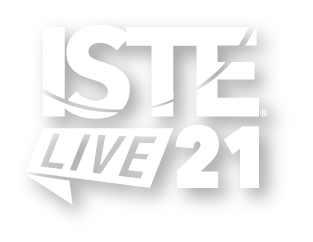

Creativity and Coding in the Literature Class |
Listen and learn : Lecture
Rubén Benet Santos Carlos Garcia
Learn how to introduce coding as a cross-curricular tool to foster students' storytelling skills and help them learn about the history of literature.
| Audience: | Professional developers, Teachers, Technology coordinators/facilitators |
| Skill level: | Beginner |
| Attendee devices: | Devices useful |
| Attendee device specification: | Laptop: Mac Tablet: iOS |
| Participant accounts, software and other materials: | - Swift Playgrounds |
| Topic: | Global collaboration |
| Grade level: | PK-12 |
| Subject area: | Computer science, Language arts |
| ISTE Standards: | For Students: Global Collaborator
|
Attendees will:
- Learn about Code to Learn, a program that has been successfully implemented at Colegio Internacional de Levante and that introduces coding as a cross-curricula tool in every subject.
- Learn about three projects in which have been implemented at that school and that could be adapted to other contexts.
- Reflect on other possible projects which relate coding, creativity and literature.
- Start a global collaboration in a new project.
- Code to learn: explanation of the program that introduces coding as a cross-curricular tool in every subject and its outcomes.
- Project one (R-Equality): a project in which students wrote a short novel whose main character was a robot and published it as a Playground Book, so they could also add a soundtrack and pictures for each chapter and recreate the main scenes in the real world by programming LEGO Mindstorms EV3 robots.
- Project two (Dante + Quixote: An adventure from La Mancha to Hell): a project in ewhci students from Italy and Spain collaborated to create a novel based on Don Quixote and The Divine Comedy and published the result as a Playground Book, where they also programmed their own games and animations with the Swift programming language.
- Project three (the third part of Don Quixote): Spanish students collaborated with students from several other countries in order to create stories based on Don Quixote and many other works, such as The Little Prince or the Metamorphosis. Then, the Spanish students programmed their own board games based on the stories. This project was carried out during lockdown.
- The pitch: having given several examples, we will ask the audience about other possible projects that combine coding, creativity and literature. Then, we will choose the best one and we will start a collaboration and also present the project in social media in order to make it as big as possible.
The presentation would last 25 minutes and the pitch, 35.
- Pelletier, J., Brown, M. & MacKinnon, G. (2002). Coding Electronic Discussion to Promote Critical Thinking: A Cross-Curricular Teacher Education Approach. In D. Willis, J. Price & N. Davis (Eds.), Proceedings of SITE 2002--Society for Information Technology & Teacher Education International Conference (pp. 1372-1374). Nashville, Tennessee, USA: Association for the Advancement of Computing in Education (AACE). Retrieved October 3, 2020 from https://www.learntechlib.org/primary/p/6740/.
- Humble, S. (Ed.). (2017). Creating the coding generation in primary schools: A practical guide for cross-curricular teaching. Routledge.

Diploma Program Coordinator, head of the Language Acquisition department and teacher at Colegio Internacional de Levante in Valencia | Professor at UCH CEU | Apple Distinguished Educator | Apple Teacher | Apple Certified Trainer. App Development with Swift 4 | Book Creator Ambassador | BookWidgets Ambassador | ClassDojo Ambassador | EU Code Week Leading Teacher | Explain Everything Enthusiast Kahoot! Ambassador | Minecraft Global Mentor | Seesaw Ambassador | Sphero Lead Educator TouchCast Ambassador
